Filter by
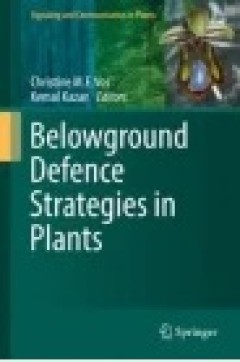
Belowground Defence Strategies in Plants
This book summarizes our current knowledge on belowground defence strategies in plants by world-class scientists actively working in the area. The volume includes chapters covering belowground defence to main soil pathogens such as Fusarium, Rhizoctonia, Verticillium, Phytophthora, Pythium and Plasmodiophora, as well as to migratory and sedentary plant parasitic nematodes. In addition, the role…
- Edition
- -
- ISBN/ISSN
- 978-3-319-42319-7
- Collation
- VIII, 410
- Series Title
- -
- Call Number
- 571.2
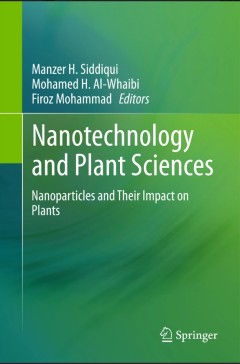
Nanotechnology and Plant Sciences: Nanoparticles and Their Impact on Plants
This book presents a holistic view of the complex and dynamic responses of plants to nanoparticles, the signal transduction mechanisms involved, and the regulation of gene expression. Further, it addresses the phytosynthesis of nanoparticles, the role of nanoparticles in the antioxidant systems of plants and agriculture, the beneficial and harmful effects of nanoparticles on plants, and the app…
- Edition
- 1
- ISBN/ISSN
- 978-3-319-36211-3
- Collation
- XII
- Series Title
- -
- Call Number
- -
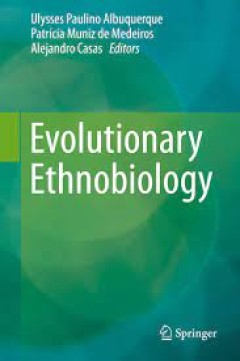
Evolutionary Ethnobiology
Ethnobiology is a fascinating science. To understand this vocation it needs to be studied under an evolutionary point of view that is very strong and significant, although this aspect is often poorly approached in the literature. This is the first book to compile and discuss information about evolutionary ethnobiology in English.
- Edition
- -
- ISBN/ISSN
- 978-3-319-19917-7
- Collation
- VIII, 204
- Series Title
- -
- Call Number
- -
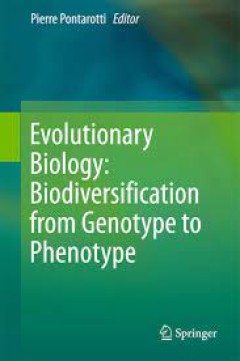
Evolutionary Biology: Biodiversification from Genotype to Phenotype
This book presents 20 selected contributions to the 18th Evolutionary Biology Meeting, which took place in September 2014 in Marseille. They are grouped under the following major themes: · Genotype to Phenotype · Genetic Mechanisms of Diversification · Evolutionary Mechanisms · Speciation and Biodiversity The aims of these annual meetings in Marseille …
- Edition
- -
- ISBN/ISSN
- 978-3-319-19932-0
- Collation
- 28 b/w illustrations, 40 illustrations in colour
- Series Title
- -
- Call Number
- -
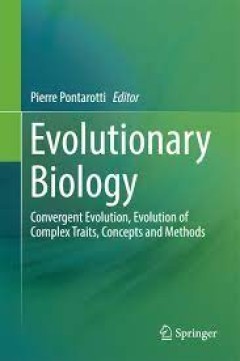
Evolutionary Biology Convergent Evolution, Evolution of Complex Traits, Conc…
This book presents selected contributions to the 19th Evolutionary Biology Meeting, which took place in September 2015 in Marseille. It consists of 22 chapters, which are grouped in four sections: · Convergent Evolution · Evolution of Complex Traits · Concepts · Methods The annual Evolutionary Biology Meetings in Marseille serve to gather leading evolu…
- Edition
- -
- ISBN/ISSN
- 978-3-319-41324-2
- Collation
- 14 b/w illustrations, 36 illustrations in colour
- Series Title
- -
- Call Number
- -
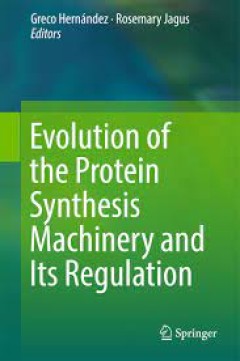
Evolution of the Protein Synthesis Machinery and Its Regulation
The “omics” era has given a new perspective to the findings on the origin and evolution of the process of translation. This book provides insight into the evolution of the translation process and machinery from a modern perspective. Written by leading experts in molecular biology, this text looks into the origins and evolution of the protein synthetic machinery.
- Edition
- -
- ISBN/ISSN
- 978-3-319-39468-8
- Collation
- Springer International
- Series Title
- -
- Call Number
- -
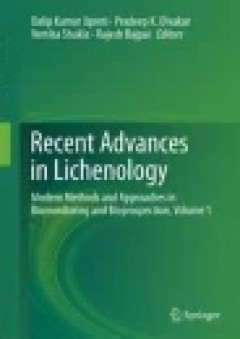
Recent Advances in Lichenology: Modern Methods and Approaches in Lichen Syste…
This book discusses in detail molecular, mycobiont culture, biomonitoring and bioprospection of lichens, providing insights into advances in different fields of lichenology by applying modern techniques and approaches and examining how their application has enhanced or changed classical approaches. It offers a valuable resource, especially for beginners, students and researchers from different …
- Edition
- -
- ISBN/ISSN
- -
- Collation
- -
- Series Title
- -
- Call Number
- 580

Recent Advances in Lichenology: Modern Methods and Approaches in Biomonitorin…
This book discusses in detail molecular, mycobiont culture, biomonitoring and bioprospection of lichens, providing insights into advances in different fields of lichenology by applying modern techniques and approaches and examining how their application has enhanced or changed classical approaches. It offers a valuable resource, especially for beginners, students and researchers from different …
- Edition
- -
- ISBN/ISSN
- -
- Collation
- -
- Series Title
- -
- Call Number
- 580

Triticale
Triticale crop species has received substantial research support since the mid-20th century making it a commercial success in many countries, in diverse value propositions. However, no recent book captures the new knowledge and progresses made in more than 2 decades. The purpose of this work is to review and collate the new knowledge of triticale plant biology and agronomy, while considering th…
- Edition
- 1
- ISBN/ISSN
- 978-3-319-22551-7
- Collation
- XI, 258
- Series Title
- -
- Call Number
- -
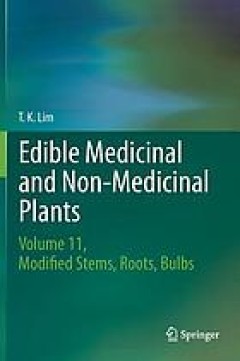
Edible medicinal and non medicinal plants. Volume 11, Modified stems, roots, …
This book covers such plants with edible modified storage subterranean stems (corms, rhizomes, stem tubers) and unmodified subterranean stem stolons, above ground swollen stems and hypocotyls, storage roots (tap root, lateral roots, root tubers), and bulbs, that are eaten as conventional or functional food as vegetables and spices, as herbal teas, and may provide a source of food additive or ne…
- Edition
- -
- ISBN/ISSN
- 9783319260624
- Collation
- x, 392 pages
- Series Title
- -
- Call Number
- 635.049
 Computer Science, Information & General Works
Computer Science, Information & General Works  Philosophy & Psychology
Philosophy & Psychology  Religion
Religion  Social Sciences
Social Sciences  Language
Language  Pure Science
Pure Science  Applied Sciences
Applied Sciences  Art & Recreation
Art & Recreation  Literature
Literature  History & Geography
History & Geography